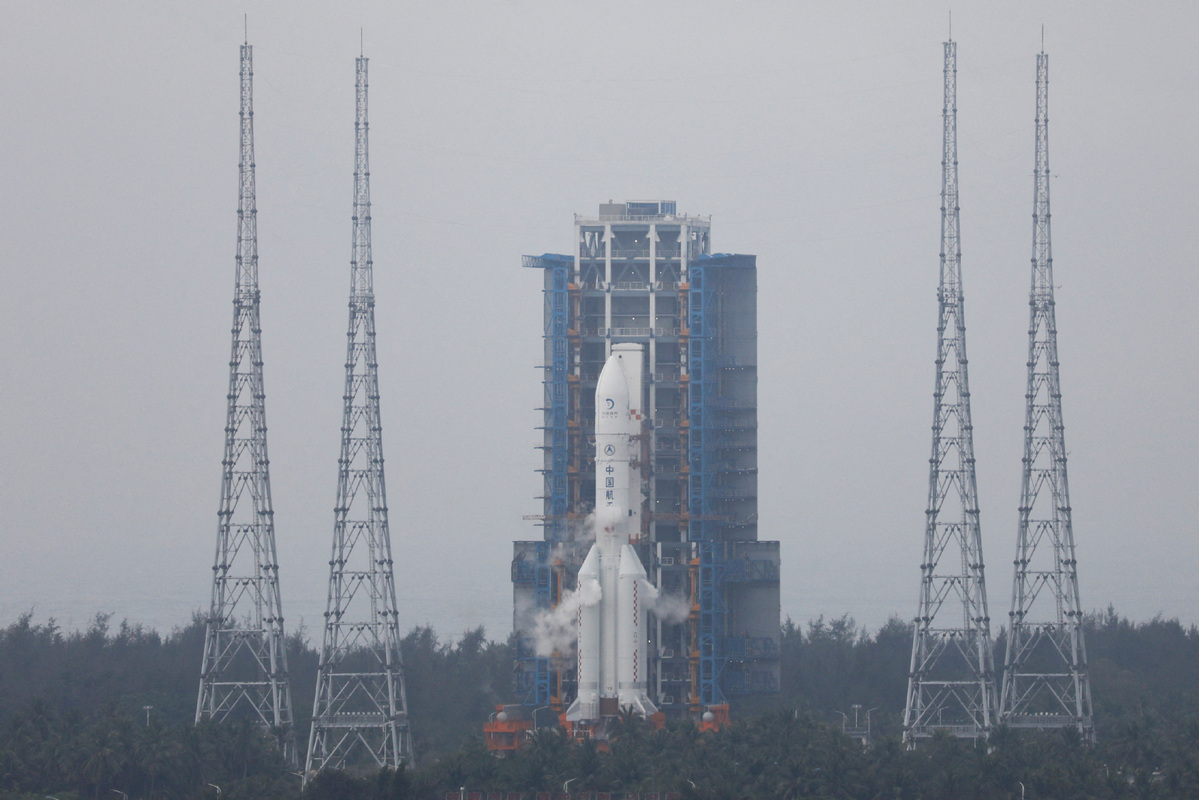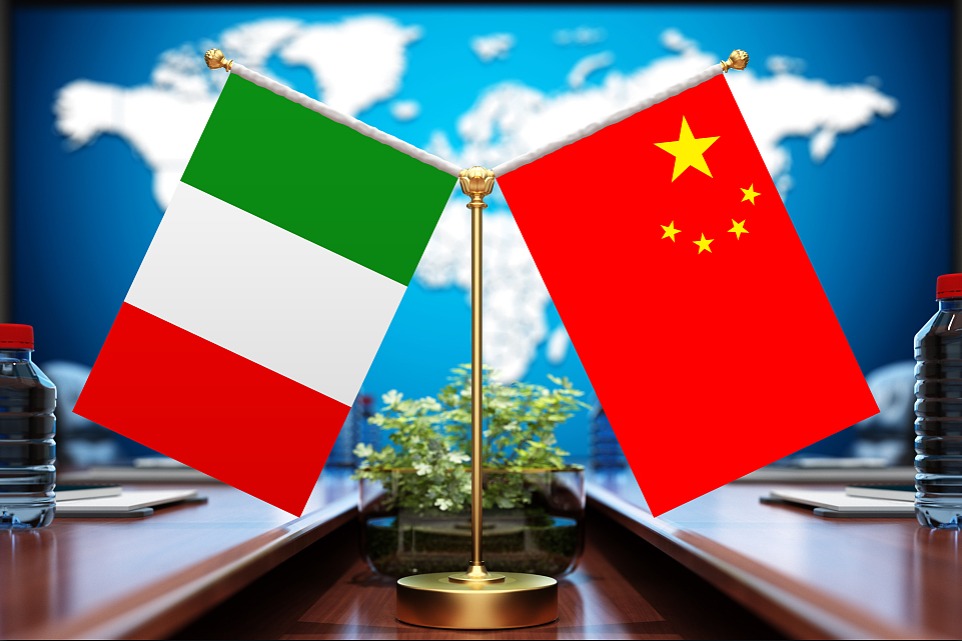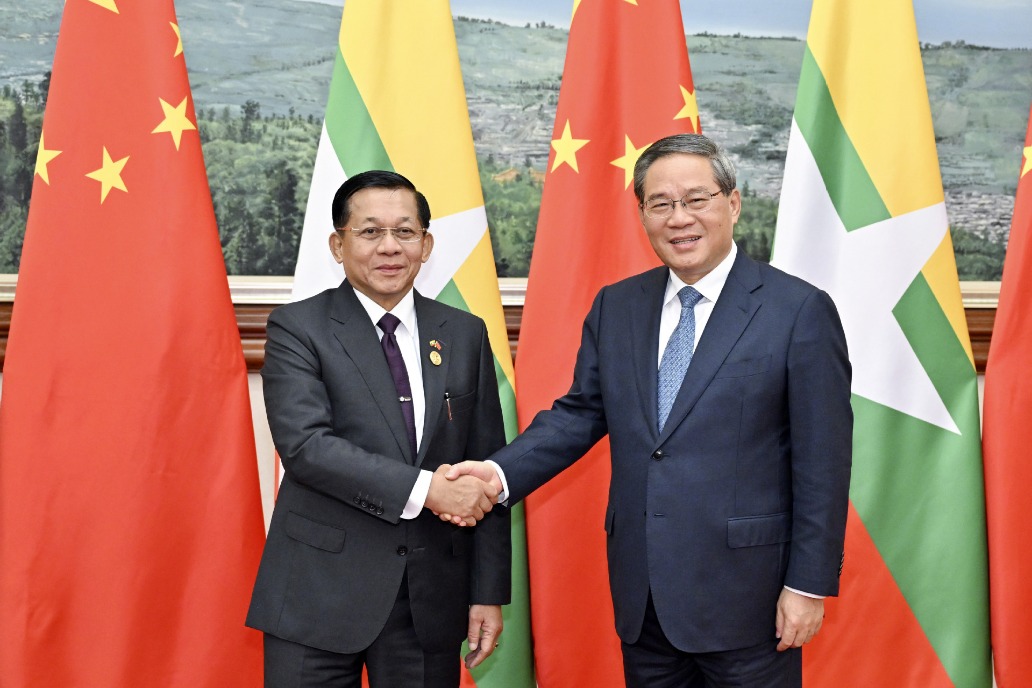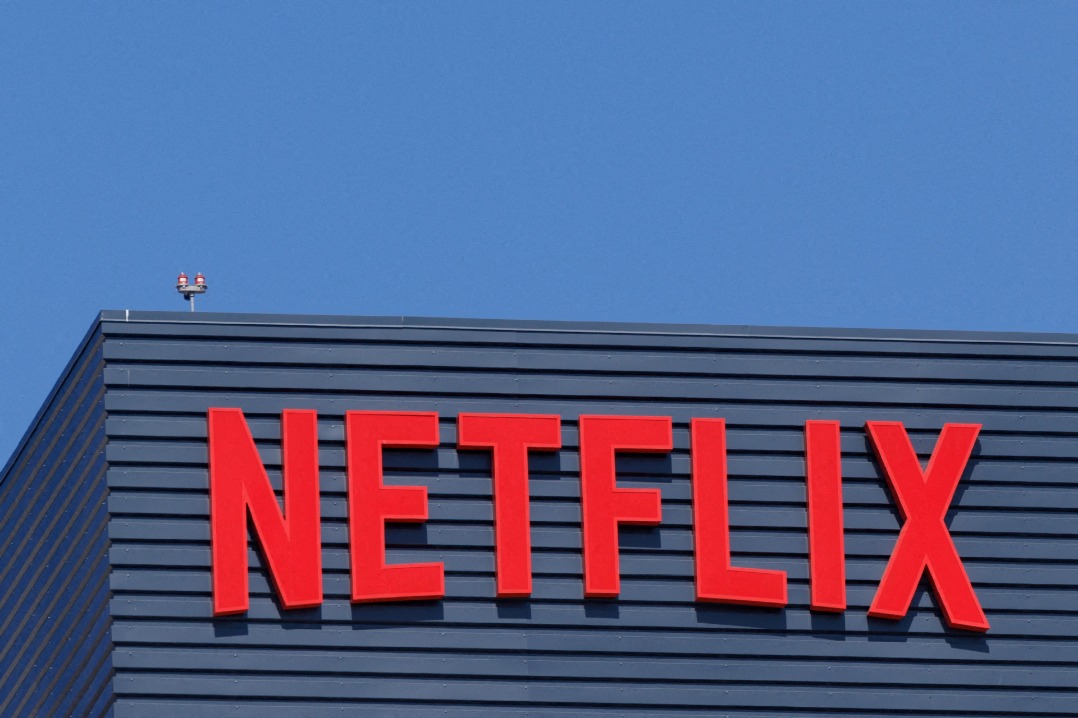Space cooperation promising despite rhetoric


Despite tough rhetoric on China in the US presidential campaign, experts see space research as a unique opportunity for collaboration between the world's two largest space powers, potentially opening doors for what some call "moon diplomacy".
The campaign has emphasized rivalry with China — with the Democratic candidate, Vice-President Kamala Harris vowing to ensure that "America, not China, wins the competition for the 21st century", and Republican candidate, former president Donald Trump threatening increased tariffs on Chinese goods to 60 percent or higher.
Washington, however, continues to pursue space-related dialogue with Beijing, particularly regarding Chinese lunar samples.
The prospect of cooperation has gained momentum following China's historic Chang'e 6 mission in June, which became the first to retrieve rock and soil samples from the far side of the moon.
That achievement has sparked discussions about potential scientific collaboration, as the samples could help researchers understand how to exploit lunar resources for future long-term space missions.
NASA officials are currently in talks with their Chinese counterparts about allowing US scientists to analyze the lunar samples retrieved by Chang'e 6, according to a Reuters report citing NASA Administrator Bill Nelson.
"China's unprecedented success in retrieving lunar samples from the far side of the moon has offered the country a valuable opportunity to welcome scientists, regardless of their nationalities, to jointly study these samples," Mei Gechlik, founder and CEO of Sinotalks, a Silicon Valley-based think tank and consultancy, told China Daily.
"Whoever wins the US presidential election should welcome this opportunity to allow US scientists' participation in the studies of these lunar samples. Scientific discoveries from these joint studies will not only break new ground in science but also help demolish barriers in geopolitics," she said.
Chinese officials offered the material to the world's scientists for study, however, the so-called Wolf amendment, a bill introduced by former US representative Frank Wolf in 2011, bars bilateral collaboration between NASA and Chinese space organizations.
The law, designed to prevent China from accessing American space technology, has drawn criticism from experts who believe it has failed to achieve its intended goals while hampering scientific exchange.
Makena Young, an aerospace-security expert at the Center for Strategic and International Studies, wrote in a 2019 review of the impact of the amendment that the restrictions "only serve to stifle mutually beneficial cooperation for science and exploration".
"There has never been a better time to reconsider this ill-conceived restriction," wrote Howard W. French, a global affairs writer and columnist at Foreign Policy, in a recent article. He views joint space research as "one of the most powerful avenues for serious, high-level cooperation" between the two nations, an opportunity that remains unexplored.
French identified a few areas where US-China collaboration could prove crucial. One area where NASA could enlist aid from China is the current crisis involving two NASA astronauts stranded aboard the International Space Station following technical issues with Boeing's Starliner spacecraft.
The astronauts, who launched on June 5 as part of NASA's Boeing Crew Flight Test, have seen their original eight-day mission extended by months. They are not expected to return to earth until late February 2025.
Another critical area for potential collaboration is addressing the growing challenge of space debris, which poses significant risks to both manned missions and satellites, according to French. He suggested this area should allow the two countries to "fashion an agenda of deep cooperation more easily".
Gechlik proposed standardizing lunar time as another potential area for collaboration. "The current lack of a standard lunar time makes it difficult to accurately position and navigate multiple lunar operations occurring simultaneously, putting everyone involved in the operations at risk," she explained.
Progress is already visible in joint studies of the moon rock samples. According to Reuters, roughly four US universities have applied for access to the Chang'e 6 samples. Some of them are believed to have been accepted through the science review phase of China's application process, Clive Neal, a University of Notre Dame professor who has been involved in efforts to gain access to the samples, told Reuters.
liazhu@chinadailyusa.com

































